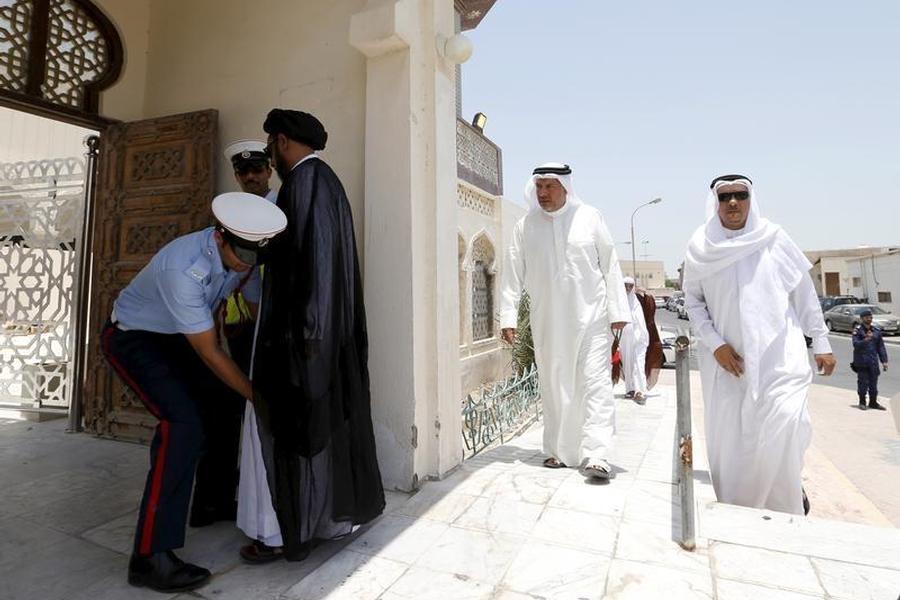Terrorist operations that have taken place in Saudi Arabia and the Gulf countries since the eighties and nineties have targeted both Sunnis and Shi’ites. In the same period, many extremist groups have emerged simultaneously with the Islamic Revolution in Iran in 1979 and the unification of Egyptian Jihad groups in one organization, which was the first seed of extremism in the world.
Some observers and researchers have underestimated extremism, its repercussions, and its terrorist phenomenon because these groups have captured their fame from radical Sunni organizations like ISIS and al-Qaeda despite that the “Jihad” concept exists among all sects. In fact, the diversity of each sect should not be neglected given that not each extremist speech is worth to be considered as a Jihadist rhetoric whether it was Sunni or Shi’ite.
Representatives of extremism in both sects form a small segment of their communities, which settled and adopted the concept of coexistence throughout history.
Terrorism that may be practiced by different religions and sects based on political ambitions uses Takfiri and religious arguments regardless of the sect it comes from; the disrespect for people’s rights, which has been encouraged by a guide or an Emir, are practiced by groups that belong to both Shi’ites and Sunnis.
*Classification of terrorism
The GCC countries have been the first in the Arab world in classifying extremist and terrorist groups; on March 7, 2014, Saudi Arabia blacklisted nine Sunni and Shi’ite groups and adopted a series of measures against their members.
Then, the UAE issued another list on November 25, 2014 that includes 86 groups; The Kingdom of Bahrain took the same step on April 11, 2016 by enlisting 68 organizations as terrorist groups; the GCC has also issued many decisions concerning specific organizations like the classification of the so-called Hezbollah as a terrorist group on March 2, 2016.
Moreover, Saudi Arabia, Gulf countries, Egypt, and Jordan have initiated the call for an international war against ISIS; Saudi and Emirati armed forces have also announced their participation in the International Coalition to combat ISIS in 2014.
*Terrorism between ISIS and Iran
Cells of ISIS have increasingly spread in 2015-2016 in the Gulf; Al-Qaeda launched many attacks in Yemen and carried out an attack in Kuwait on June 26, 2016 that killed 27 people and wounded 227; on the 12th of January 2016, two members from Al-Abdali cell linked to the Army of the Guardians of the Islamic Revolution were sentenced to death by a Kuwaiti court. The Kingdom of Bahrain succeeded in thwarting 12 terrorist plots and arms smuggling operations by Shi’ite extremist groups from 2011 till the 16th of January 2016; in September 2015, the Kingdom has suspended diplomatic relations with Iran and took the legal measures against it for its constant intervention in the Bahraini internal affairs.
In Saudi Arabia, ISIS-related terrorism killed 13 people and wounded 31 others between January and June 2016; on the 30th of April 2015, ISIS chief Abu Bakr al-Baghdadi has also directed its supporters to target the Kingdom and described it as the source of evil. Over the two past years, Saudi Arabia witnessed around 15 suicide bombing attacks carried out by ISIS and Shi’ite extremists, in addition to a number of operations that targeted mosques for both Sunnis and Shi’ites in Jeddah and Qatif regions.
*Iran, an exception
Osama bin Laden considered Saudi Arabia his first enemy and the first target of his attacks, but he always recommended not to target Iran. He considered the Kingdom a home for disbelief and insisted on attacking it. Moreover, calls for terrorism have found a remarkable response from both Sunni and Shi’ite extremists, who have considered Saudi Arabia their main enemy.
It is worth noting that the Kingdom has been the first to kick al-Qaeda members out of its territories and to eradicate their presence since 2005, a move that has been ignored by Western observers and experts; members of the U.S. Congress have also neglected the Kingdom’s achievement in this field and blamed it for crimes committed by members who targeted the Saudi national security in the first place.
